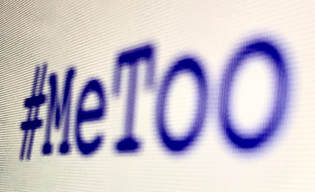 From Donald Trump to #MeToo, 2017 was a momentous, albeit tumultuous, year in social media. Highlights featured increases in active users and improved tools for sharing content. Lowlights included continued problems with harassment, threats, and the ease with which major platforms such as Facebook and Twitter could be co-opted to influence an election. Here are a few of the important social media issues and moments from 2017: Twitter’s Resurgence. For a period of about two years, Twitter experienced a lull in growth of daily active users. Then something inexplicable happened: the 2016 presidential election. Specifically, Donald Trump happened. Twitter’s rebound can be attributed, in part, to Trump’s tweets. In late October, Twitter reported third quarter results that exceeded Wall Street expectations. The growth in Twitter’s active users was likely a reaction to those who joined or reactivated dormant accounts, just to read the president’s tweets, react to his tweets, and interact with others about Trump. Another reason for the uptick may be attributed to the increase from 140 characters to 280 characters for a tweet. The move was both panned and praised by users, and it’s too early to tell if additional characters definitively improved activity. While Twitter was rolling out new rules and character limits, the #MeToo campaign emerged as a forum for pulling back the curtain on the sexual assault and harassment in entertainment, media and other industries. Facebook Follies. Two billion monthly active users gave Facebook reason to celebrate in 2017. In comparison, YouTube entertains 1.5 billion monthly users, and WattsApp boasts 1.2 billion active users. Unfortunately, Facebook was mired in political turmoil when the social media giant disclosed it found more than 3,000 ads bought by 470 accounts through a Russian agency. The accounts were shuttered, the ads shared with Congress and special investigators, and a new Facebook “action plan” was put in place to (hopefully) stave off interference in future elections. With all the negative attention, Facebook is pressing forward in 2018 with new tools to prevent harassment, to fight engagement bait or “click bait” posts, and to improve options for advertisers and sharing content. Looking Forward to 2018. There’s a lot to be hopeful for in 2018, including new community building tools. These new apps promise to improve our online dialogue, apps that bring us together rather than tear us apart. I’ll be featuring a few of these in the next few months. For example, an up-and-coming app with great potential to build community is OpenMind (openmindplatform.org). It was created to prepare users — emotionally and psychologically — to engage others online in ways that foster intellectual discussion and debate, a way to introduce us to new points-of-view without sacrificing our personal values and convictions.
0 Comments
Your comment will be posted after it is approved.
Leave a Reply. |
AuthorDr. Adam C. Earnheardt is special assistant to the provost and professor of communication in the department of communication at Youngstown State University in Youngstown, OH, USA where he also directs the graduate program in professional communication. He researches and writes on a variety of topics including communication technologies, relationships, and sports (with an emphasis on fandom). His work has appeared in Mahoning Matters as well as The Vindicator and Tribune-Chronicle newspapers. CategoriesArchives
July 2023
|
 RSS Feed
RSS Feed